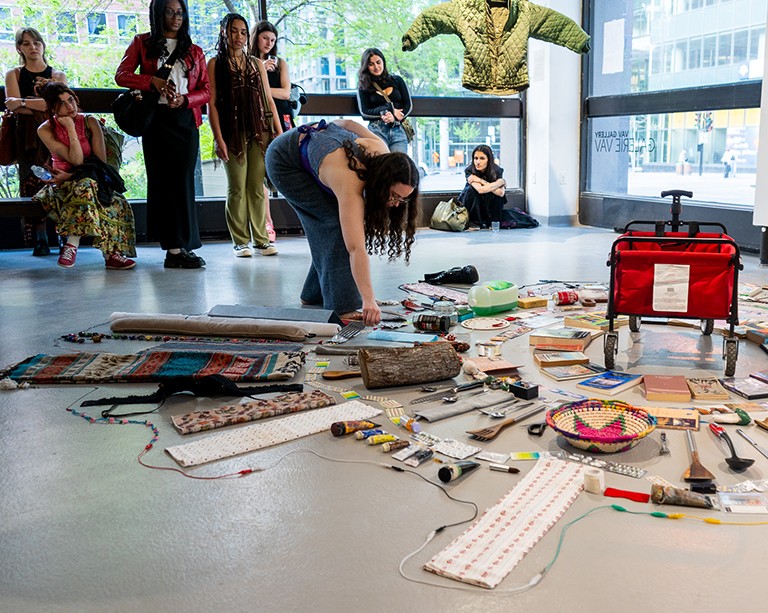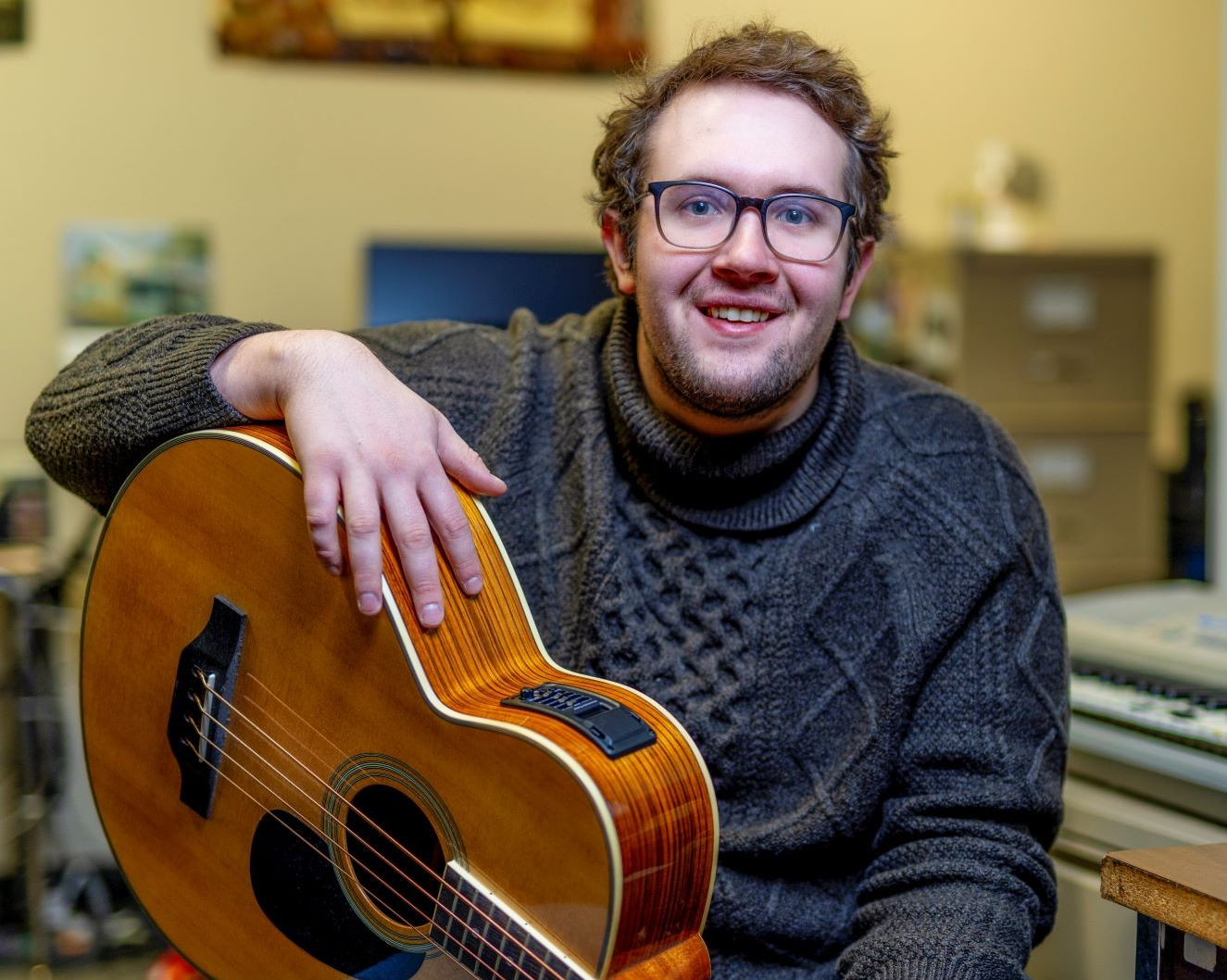Concordia works to ensure a safer orientation and frosh season
 Jennifer Drummond (left) is the coordinator of Concordia’s Sexual Assault Resource Centre (SARC), one of the many groups on campus involved in the development of the safety training program.
Jennifer Drummond (left) is the coordinator of Concordia’s Sexual Assault Resource Centre (SARC), one of the many groups on campus involved in the development of the safety training program.
At the start of every school year at Concordia, various student associations host orientation and frosh activities to welcome new students.
But before the festivities get under way, student leaders, staff and volunteers go through mandatory training sessions on community building, consent, bystander intervention and risk reduction. It’s part of an initiative to help make the festivities safer and more successful.
A safer, more inclusive frosh
Four years ago, a string of nationwide news stories highlighted troubling behaviour that took place during student-led frosh events at some Canadian universities.
Alarmed by what he read, dean of students Andrew Woodall met with student leaders to see how the university could help ensure a safer, more inclusive frosh and orientation.
The resulting training program was co-created by the student associations and the Dean of Students Office, explains Terry Kyle, manager of student life.
“For the last couple of years, we’ve been building on feedback we’ve gotten from student associations and growing it to include pertinent information on the vulnerability of new students, responsible alcohol consumption, bystander intervention and more,” she says.
An educational opportunity
Alex Oster, coordinator of student engagement, says that Concordia saw an educational opportunity to engage students on issues related to alcohol consumption, responsible event planning and consent.
“Together, we are furthering an important conversation that needs to be happening both on and off campus.”
Kyle says that opening the discussion on frosh and orientation safety has been important in engaging the student body.
“The reality is that young people sometimes experiment with drugs and alcohol, and here we have an opportunity to have open conversations about the risks involved,” she says.
“We can talk about some of the dangers in a safe, constructive way. If students aren’t given the chance to have these conversations beforehand, how can we expect it to happen once they get to the event?”
Important stakeholders
The training approach is designed to help students, both with planning and participating in orientation and frosh events.
Many other groups on campus have been involved in the development of the program as well, including the Student Success Centre, the Centre for Gender Advocacy, the Sexual Assault Resource Centre, Concordia Health Services, Hospitality Concordia and the Security Department.
“Many people are involved at looking at events on campus, and giving their input on what can be improved,” says Kyle. “Every year we build on the last.”
“We are seeing student groups holding each other accountable. There’s now a real sense of responsibility on behalf of student leaders to ensure that events are planned with care and foresight.”
Hundreds trained on consent
All frosh and orientation events on campus now include designated “chill out” zones.
These areas have sober monitors available to help those who’ve had too much to drink or just need a break from the party.
“They were created to provide students with a safer space that they could go to if they didn't feel well, were uncomfortable or anxious, or needed water or food,” says Julia Sutera Sardo, president of the Arts and Science Federation of Associations (ASFA).
“Having a safer, more inclusive and accommodating frosh is significant because this is first years' entry to university and its intended to welcome all incoming students.”
Alcohol-free alternatives
The Engineering and Computer Science Association is incorporating dry events in order to make its orientation and frosh more inclusive and accessible to new students.
“By adding more dry, free events, we are able to achieve higher participation and come closer to accomplishing our goal of easing the integration of new students into university life,” says Ben Maniraguha, the ECA’s vice-president of Social Affairs.
Beyond chill out zones and dry events, two faculty student associations are now also enforcing mandatory training. This year, every student registered for the ASFA and Commerce and Administration Students’ Association (CASA) frosh events will go through an hour-long workshop on consent and risk reduction before being allowed to participate.
Destigmatizing the question of consent is something Sardo feels strongly about.
“If we want our students to do better and to work collaboratively in order to change university campus culture, we need to talk about things that make us uncomfortable,” she says.
“It can be tough to talk about consent, or understand the concept, or even know where to begin with asking for consent. We’re doing our best to make sure that everyone is informed and equipped before frosh begins, so that we can all be respectful of one another’s boundaries, sexual or otherwise.”
This year, hundreds of new students will be given a version of the training that frosh leaders, staff and volunteers get.
Effects go beyond campus
Oster says that the training given to students goes beyond ensuring that partying on campus is safer. It also has an effect outside the university setting.
“Many students have told me how they’ve taken the practices they learned through the training and applied them to off-campus scenarios,” he says.
Kyle adds: “We hear about students making sure other students get home safe, and about designated sober monitors at bars, who give out taxi chits and ensure that if an ambulance is needed their student group will cover the cost.”
Students leaders, including CASA president Rudy Grow, agree that it’s heartening to see the results of campus-wide collaborative efforts playing out.
“The support that CASA gets from the Dean of Students Office is phenomenal,” he says. “It's great to see the student groups on campus making strides towards a safer, more inclusive frosh culture for all.”
Find out more about Concordia’s Orientation 2017 and the Office of the Dean of Students. Also, check out student-led frosh and orientation activities.


